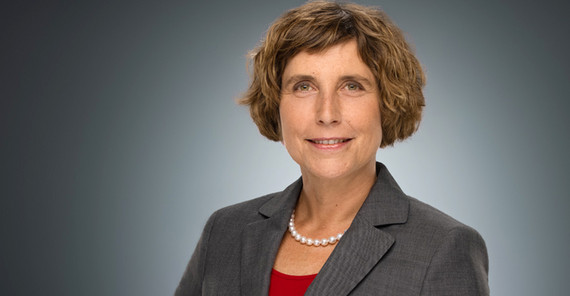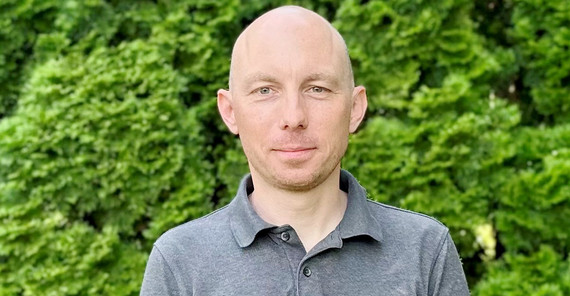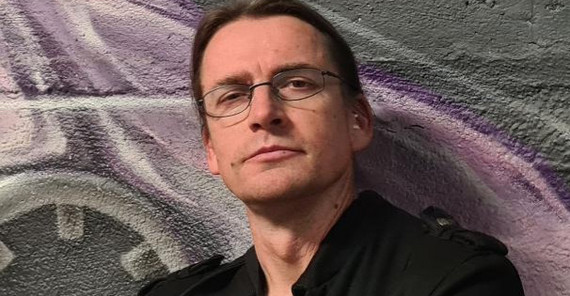It is Wednesday, 11:30 a.m. In the media library of the Protestant Elementary School Babelsberg, almost 20 children are sitting on benches and stools in a circle. A girl comes in, a plate of fried sausage (bratwurst) and sauerkraut in her hands; others are munching on their sandwiches. The mood is relaxed; the children are chattering. But things are about to get serious because the stakes are high. In the KiPa, the children’s parliament at school, an important question is on the agenda: Should sweets disappear from lunch boxes in the future? There’s no long preliminary skirmishing. Miriam Meeden, the all-day teacher who coordinates the committee, welcomes the group cheerfully. She then goes through a pile of small pieces of paper on which all the children have written down in advance topics they want to talk about. The agenda is short but pressing. There are demands for soccer field time for girls only, sparkling water in the small house, clean toilets, and no more chewing gum underneath slippers.
Soccer field and sweets
The KiPa is not the German Federal Parliament. Here, it is not about migration, structural reform, and the dawning of a new age. And that is a good thing, because here the issues that really matter to the students are being negotiated. “Children encounter politics everywhere in their environment without being aware of it,” explains Dr. Maik Wienecke, research assistant at the Chair of History Didactics at the University of Potsdam. “Traffic signs on the way to school, escape routes at school, ingredients in sweets, everything is based on rules and decisions. This is exactly where lessons should start.”
And indeed, they have to. Because many people seem not to know (anymore) what democratic participation looks like: what it can achieve, what tools are involved, and how important it is to listen to each other. “In my view, the most important principles here are the reference to the surrounding environment and multiple perspectives,” Wienecke says. On the one hand, this means that when it comes to sweets in the lunch box, everyone in elementary school is definitely in, while teenagers may prefer to discuss rules for media use. On the other hand, it is important to negotiate such topics in a truly democratic way. “Based on the examples, the children learn that changes are not equally bad or good for those affected,” Wienecke explains. “Only when the children get to know different perspectives on the problem do they develop an understanding of politics. This is how they become aware in the first place that discussions, arguments, and ultimately compromises are necessary.”
The session has picked up speed in the KiPa at Babelsberg Protestant Elementary School. Some parliamentarians are lying on the tables, others are still eating. Discipline is not a priority here, and yet the committee works. The children listen to each other, respond to each other‘s arguments, and concentrate on bringing topics to a close. Of course, conflicts cannot be avoided. One boy doesn’t want to give up the soccer pitch without a fight: “I play there every day. If an hour is now reserved just for girls, I think that’s stupid.” Meeden moderates cautiously. After 30 minutes, the session is over. Decisions are passed on to the classes, the teachers, or the school conference: A survey is to show when the girls want to use the soccer pitch on their own; the school management is asked to take care of the toilets - and there is an appeal about the chewing gum under the slippers, which the students present in their class council. “This class council meeting takes place weekly and is led by the children themselves,” explains principal Susanne Anders. If there are topics that affect the entire school community, the “KiPa children” take them to the children’s parliament. “The older the students get, the more interesting socio-political issues become. For the weekly current hour, one child prepares a current topic and shares this information with the others. Afterwards, discussions are often held at a high level.”
Having a say in what happens at school
Politics is not a sprint but an endurance run. “Political education is an ongoing task and should not just be brought in when there is a 'fire' somewhere,” says Iris Baumgardt, Professor of Primary Education Pedagogics for the subject Social Studies and Science at the University of Potsdam. “It begins in kindergarten, continues in elementary school, and should be a central task throughout one’s entire school life.” It is therefore important to take up the interest of children and adolescents in political aspects of their lives from the very beginning and to enrich and differentiate it at school. That sounds good but is also exhausting, as Max Droll explains, research assistant at the Chair of Political Education, who trains future teachers. “In practice, this means that we have to reflect on ourselves as teachers and parents. We should question traditional power structures and have the courage to grant children and adolescents real co-determination.”
At the Protestant Elementary School in Babelsberg, political participation has indeed found even more room: The students were involved in the redesign of their classrooms, were allowed to contribute their ideas, and in some cases even helped build the new furniture. The result is impressive: No room is the same, there are galleries with reading corners throughout, high desks reminiscent of a bar, low ones where you sit on the floor. The children come in the morning and look for a place that suits them and their way of working. Seating arrangements are rarely used. Teaching projects often also revolve around the design and processes of the school – sometimes it’s a survey about their favorite dessert, sometimes a class works on the redesign of the schoolyard and ideas for new toys at the same time.
“We often experience democracy as a set of rules with many agreed structures – from the right to vote to the protection of minorities – but it comes alive primarily through the democratic attitude of those involved,” says Anders, explaining the school’s goal. The KiPa children seem to be developing such an attitude with self-confidence. “We want to have a say in what happens at school,” says a boy, perhaps nine years old, after the meeting. “It would be stupid if only the adults did that.” And fortunately, they agree that it works. “We definitely notice that the teachers take it seriously when we draw attention to a problem,” adds a second-grader. They learn that getting involved makes a difference. “It is important that children see the effect of their participation so that they understand that their voice counts,” Droll is convinced.
“Political education remains an ongoing societal task”
Max Droll, research assistant at the Chair of Political Education, talked to Matthias Zimmermann about how children should experience and learn politics.
Politics and children – do they go together?
Children repeatedly experience situations in their everyday lives that reflect democratic decision-making processes, even though they do not recognize them as such. For example, when the kindergarten group discusses the everyday question and decides according to the wishes of the majority whether to play outside on the playground or inside. These and many other decisions in the group require the ability to make compromises – a key competence in politics. These experiences are formative because they teach children that participation is important and that their opinions should be respected. However, this should be done in an age-appropriate way. This means that they get the opportunity to make decisions within a framework that they understand and in which they feel safe. When children learn that compromises are necessary and that it is not always just about enforcing one’s own opinion, we can teach them the basics for politically responsible behavior.
What does age-appropriate teaching of politics for the very young look like?
Do they need to know political structures and processes? Political education does not begin with subject-matter specific instructions but through interaction with a world that is relevant to the children. Already at the age of four to six, they can playfully be involved in decisions that affect their everyday lives. Children should experience what it is like to actively participate in change processes. One example would be a school project to redesign a playground in which children are allowed to express their wishes. Such real-life experiences are far more valuable than isolated simulations such as junior elections, which often fall short of students’ expectations because they have no tangible influence on their lives. Students need to realize that democratic processes can take a long time and can sometimes be frustrating but ultimately form the basis for a just and functioning society.
“All power to the children”?
Yes, when it is about their interests and concerns. It is often a difficult process to grant children participatory rights, particularly because you have to break with familiar patterns. Nevertheless, it is indispensable because students must be encouraged to assume their role as young citizens in a responsible manner.
How can political education counter the ongoing division of society?
Although political education does not have a short-term problem-solving function, it must address current political developments openly and critically. Parties such as the AfD often address problems that have no factual relevance. It is the task of political education to enable people to recognize and express their actual needs and concerns. This is crucial for a free and democratic community.
Iris Baumgardt has been a Professor of Primary Education Pedagogics for General Studies with a focus on Social Sciences at the University of Potsdam since 2021.
Maik Wienecke has been a research assistant at the Chair of History Didactics for Social Sciences since 2017.
Max Droll has been a research assistant at the Chair of Political Education since 2015.
This text (in german language) was published in the university magazine Portal - Eins 2025 „Kinder“.




